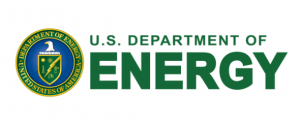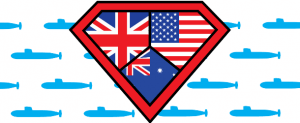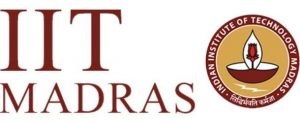Quantum News Briefs October 31: China to take ‘hack-proof’ quantum satellite technology to medium-earth orbit, DOE announces $11.4M for research on quantum information science for fusion energy sciences; The U.S. can’t lead alone on quantum computing + MORE

Quantum News Briefs October 31:
China to take ‘hack-proof’ quantum satellite technology to medium-earth orbit
 China launched the first dedicated quantum communications satellite, named Micius, in 2016, and has been quietly working on followup missions in the years since. Quantum News Briefs summarizes the October 30 Space.com article detailing China’s advancement in this endeavor.
China launched the first dedicated quantum communications satellite, named Micius, in 2016, and has been quietly working on followup missions in the years since. Quantum News Briefs summarizes the October 30 Space.com article detailing China’s advancement in this endeavor.
Micius managed to set a new record for the distance over which secure data could be transmitted using quantum means. The satellite sent keys to ground stations in Delingha and Nanshan in China, some 756 miles (1,200 kilometers) apart, and later even farther, sharing data between a site in China and one in Austria.
Placing new quantum satellites in higher orbits, similar to those of GPS satellites, means they will have a greater view of Earth below than does Micius, which orbits at around 310 miles (500 km) above our planet, and will be visible to ground stations for longer periods of time. It also means Chinese scientists and engineers will need to be able to transmit the quantum keys accurately over much greater distances.
To begin sending signals from around 6,200 miles (10,000 km) up, the challenges include micro-vibration suppression technology needed for spacecraft to send precise optical or laser signals.
China is not the only country active in this area, which could revolutionize how we transmit sensitive data.
Europe is currently working toward launching a technology demonstration Quantum Key Distribution Satellite (QKDSat), known as Eagle-1, the European Space Agency announced last year. Click here to read the Space.com article in-entirety.
DOE announces $11.4M for research on quantum information science for fusion energy sciences
 The U.S. Department of Energy (DOE) announced $11.4 million for six projects in quantum information science (QIS) with relevance to fusion and plasma science on October 30. Quantum News Briefs summarizes.
The U.S. Department of Energy (DOE) announced $11.4 million for six projects in quantum information science (QIS) with relevance to fusion and plasma science on October 30. Quantum News Briefs summarizes.
The Fusion Energy Sciences (FES) program supports fundamental research to expand the understanding of matter at very high temperatures and densities and to build the scientific foundation needed to develop a fusion energy source. The QIS portfolio within FES supports research opportunities outlined in the 2018 Fusion Energy Sciences Roundtable on Quantum Information Science report. It includes science and technology thrusts where QIS might have a transformative impact on FES mission areas, including fusion and discovery plasma science. It also includes exploring fundamental science supported by FES to advance the field of Quantum Information Science beyond FES’ applications.
Jean Paul Allain, Associate Director of Science for FES, explained, “The convergence of quantum science, fusion energy, and plasma science is an exciting and revolutionary emergent area of discovery and broader impact.”
Projects funded in this announcement will advance quantum algorithms relevant to fusion and plasma physics on existing and near‐term quantum computers, develop novel high-sensitivity measurement techniques for plasmas, and explore the use of high energy density physics methods for novel QIS materials discovery and synthesis. The list of projects and more information can be found on the FES program page
The projects were selected by competitive peer review under the DOE Funding Opportunity Announcement for Quantum Information Science Research for Fusion Energy Sciences. They will last up to three years, with total funding of $11.4 million: $3.8 million in FY23 and $7.6 million in outyear funding contingent on congressional appropriations. The list of projects and more information can be found on the FES program page. Click here to read entire announcement.
The U.S. can’t lead alone on quantum computing
 The United States must work to mitigate the risks that quantum computers pose to national and economic security according to a Bronte Munro, an analyst at the Australian Strategic Policy Institute in Washington, D.C.C. in a comprehensive October 25 article in Foreign Policy summarized below by Quantum News Briefs.
The United States must work to mitigate the risks that quantum computers pose to national and economic security according to a Bronte Munro, an analyst at the Australian Strategic Policy Institute in Washington, D.C.C. in a comprehensive October 25 article in Foreign Policy summarized below by Quantum News Briefs.
Australia is a natural partner for the United States on quantum computing. Despite having only 0.3 percent of the global population, Australia is home to 10 percent of the world’s quantum scientists; these scientists are supported by a national quantum strategy.
Meanwhile, China is ranked second to the United States in terms of research about this technology, according to the Australian Strategic Policy Institute’s Critical Technology Tracker, and the race to achieve quantum supremacy is intensifying.
The United States must work to mitigate the risks that quantum computers pose to national and economic security. However, he United States can’t safeguard its leadership on quantum computing by acting alone. In a similar situation to the semiconductor industry, there is a limited global talent pool of expertise in the sector, and Washington needs to coordinate the human capital, research and development, and the advanced manufacturing capabilities needed to bring quantum computing online in a time frame conducive to the pacing threat that China poses.
The United States has already acknowledged the pressing need to secure advanced technology supply chains through the passing of the CHIPS and Science Act in August 2022. As the country looks to place similar export controls on advanced technologies such as quantum computing, it must not cut its allies out. Instead, Washington needs to leverage the complementary strengths of each nations’ advanced technology ecosystems. That collaboration must begin with semiconductors.
Conversations on the security of advanced semiconductor supply chains and the importance of investment in quantum computing often occur independently. Yet, Washington’s ability to maintain global leadership in the quantum computing industry hinges on secure access to advanced semiconductor manufacturing.
Collaboration between the United States and Australia in quantum computing sciences dates to the late 1990s, when there was engagement between the U.S. Army Research Office and Australian quantum computing research centers. Alongside the U.S.-Australia bilateral relationship, the AUKUS security arrangement offers the two nations an endorsed pathway to deepen innovation ties and achieve scalability alongside the United Kingdom. Click here to read the Foreign Policy article in-entirety.
IIT Madras joins IBM Quantum Network
 IBM has announced that the Indian Institute of Technology Madras (IIT-Madras) becomes the first Indian institution to join the IBM Quantum Network to advance quantum computing skills development and research in India. Quantum News Briefs summarizes the announcement made on Photonics Online.
IBM has announced that the Indian Institute of Technology Madras (IIT-Madras) becomes the first Indian institution to join the IBM Quantum Network to advance quantum computing skills development and research in India. Quantum News Briefs summarizes the announcement made on Photonics Online.
As a member of the IBM Quantum Network, IIT Madras will get cloud-based access to IBM’s most advanced quantum computing systems and IBM’s quantum expertise to explore practical applications, and realize the wide-ranging benefits of this technology for business and society.
IIT Madras’ Centre for Quantum Information, Communication and Computing (CQuICC) will focus on advancing core algorithms in research areas like Quantum Machine Learning, Quantum Optimization, and applications research in finance. They will use IBM Quantum services alongside the open-source Qiskit framework to explore areas such as quantum algorithms, quantum machine learning, quantum error correction and error mitigation, quantum tomography, and quantum chemistry, and to also advance and grow the quantum computing ecosystem in the country. Researchers from IIT Madras will contribute to the advancement of research in the application of quantum computing with support from IBM Research India in such domains that are relevant to India.
IIT Madras joins more than 180 members of the IBM Quantum Network, a global community of Fortune 500 companies, start-ups, academic institutions, and research labs working with IBM Quantum technology to advance quantum computing and explore practical applications.
Sandra K. Helsel, Ph.D. has been researching and reporting on frontier technologies since 1990. She has her Ph.D. from the University of Arizona.



















